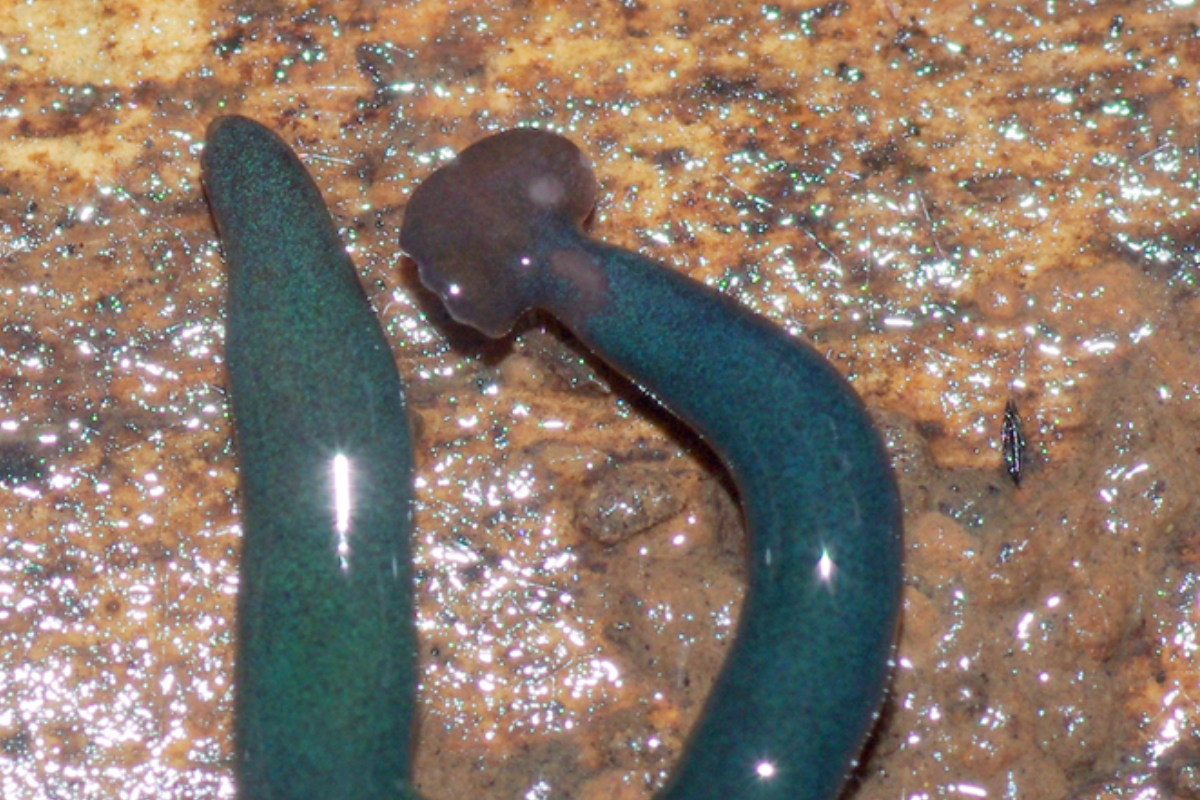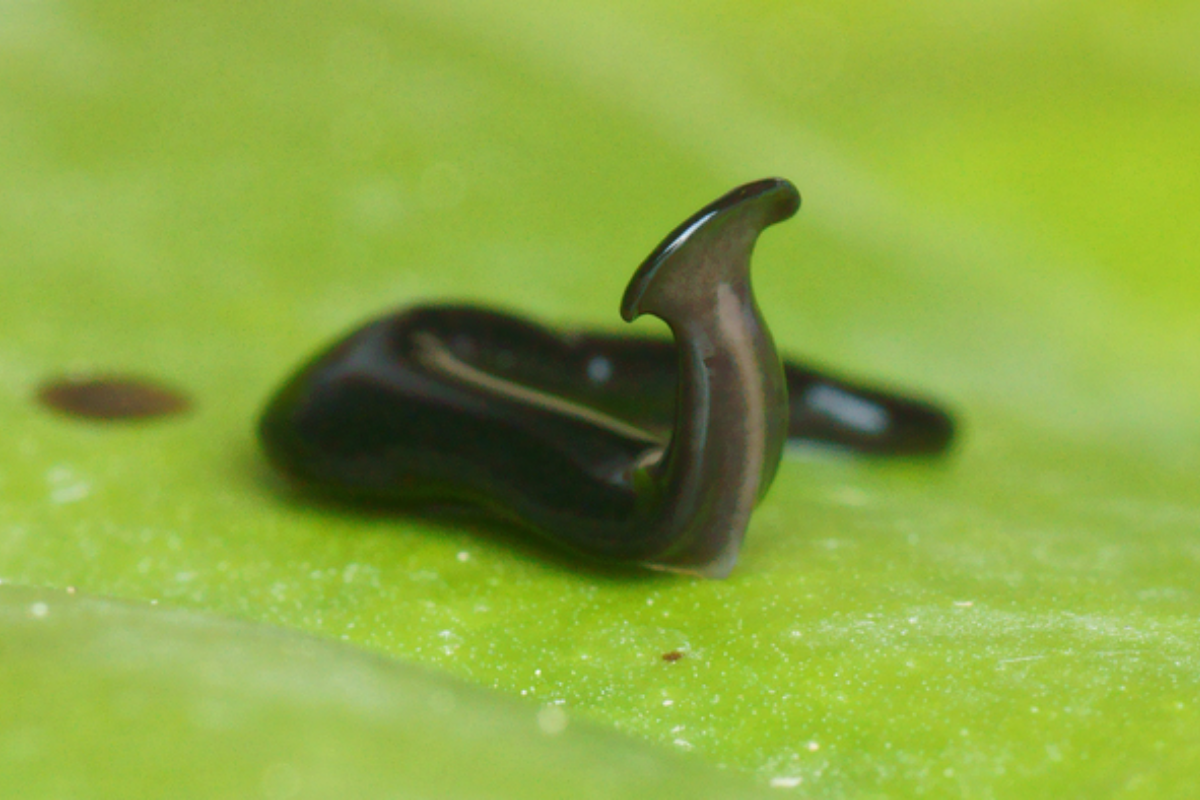A bright blue, hammerhead worm was one of two new species found by scientists that could pose an invasive species threat.
The worm, named Diversibipalium mayottensis, was found on the French-owned Indian Ocean island of Mayotte, which lies between Madagascar and Mozambique.
The green-blue iridescent creature measures about 1.1 inches in length and is the sister species of other hammerhead worms, meaning it could provide an insight into their evolution.

Diversibipalium mayottensis is one of two new hammerhead worm species described in the open access journal PeerJ on February 1. The other, a black worm named Humbertium covidum, which was discovered in Italy.
Both these hammerhead worms could potentially become invasive species, the study authors said—although the remote location of the blue worm meant it poses less of a threat than its counterpart.
In today's globalized world, invasive species can disrupt finely balanced ecosystems and threaten native species.
Study co-author Jean-Lou Justine, from the Muséum National d'Histoire Naturelle (ISYEB) in France, said how much of a threat the new worm species pose is unknown.
"What we know, however, is that invasive species of land planarians are a threat to soil biodiversity and ecology," he told Newsweek. "There is a single detailed ecological study published in this field ... They found that the biomass of earthworms was 20 percent lower where the invasive flatworm was present."
Justine said that Humbertium covidum, the hammerhead worm found in Italy, posed the main threat as a potential invasive species. Thousands of worms of that type had been found in a single garden in Italy, he said.

Land flatworms like Humbertium covidum are predators that feed on soil and the animals such as earthworms and snails that live. Their introduction in areas where they are not native could threaten soil biodiversity by disrupting those ecosystems.
The worms described by Justine and his team cannot traverse the large distances between continents, but they can hitch a ride on human transport making those journeys.
"Land flatworms do not fly, do not swim, and are very slow on land," he said. "They are typically transported with potted plants: they are undetectable in the soil transported in each pot, or even under the pot. They only way to avoid future invasions is to limit the transport of potted plants."
There is already some recognition of this problem on mainland Europe. The European Commission (EC) is currently considering the problem and since 2019 has implemented measures that require imported potted plants to be in an earth-free medium.
The EC announced in 2019 measures it was taking to promote plant health, including stricter measures to ward off the threat posed by invasive species.
Justine said the worm discovery highlights the risks of invasive species and the role international trade and travel has. "It is of course worse in a globalized world, and invasive flatworms are only one example among many others," he said.
Uncommon Knowledge
Newsweek is committed to challenging conventional wisdom and finding connections in the search for common ground.
Newsweek is committed to challenging conventional wisdom and finding connections in the search for common ground.
About the writer
To read how Newsweek uses AI as a newsroom tool, Click here.








